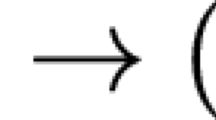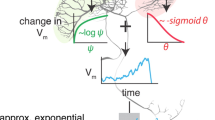Abstract
The question ‘What is computation?’ might seem a trivial one to many, but this is far from being in consensus in philosophy of mind, cognitive science and even in physics. The lack of consensus leads to some interesting, yet contentious, claims, such as that cognition or even the universe is computational. Some have argued, though, that computation is a subjective phenomenon: whether or not a physical system is computational, and if so, which computation it performs, is entirely a matter of an observer choosing to view it as such. According to one view, which we dub bold anti-realist pancomputationalism, every physical object (can be said to) computes every computer program. According to another, more modest view, some computational systems can be ascribed multiple computational descriptions. We argue that the first view is misguided, and that the second view need not entail observer-relativity of computation. At least to a large extent, computation is an objective phenomenon. Construed as a form of information processing, we argue that information-processing considerations determine what type of computation takes place in physical systems.
Similar content being viewed by others
Notes
I thank an anonymous referee for this critique.
There are four two-input, one-output gates that process structured input data.
For a similar argument in the context of defending the mechanistic account of computation see (Dewhurst 2014).
It may be argued that there exist some weaker FSAs and TMs (e.g., a single-state FSA) for which an indeterminacy argument can be constructed thereby showing that the IIP account cannot treat all these systems uniformly as memory-based nontrivial computational systems. For a detailed discussion of the memory model in such systems in a generalised meta-computational space see (Fresco and Wolf 2014).
The expression ‘ordinary open systems’ refers to systems that are open to influences, such as gravitational and electromagnetic forces, and constantly change.
An internal state of Κ is defined as a set of K’s maximal states (a maximal state is a complete specification of the values of all the relevant variables of Κ) for some given real-time interval (e.g., from 13:00 to 13:04) such that these maximal states correspond to the automaton’s states in a single run of δ.
This argument can be reformulated in terms of data, rather than information, since the underlying data are those used to carry information. For ease of exposition it is formulated in terms of information.
Interestingly, although quantum mechanics provides for a significant improvement over classical mechanics in the efficiency of communication, arguably, “the transmission of n quantum bits cannot serve to communicate more than n classical bits of information” (Brassard 2003, p. 611).
I thank an anonymous referee for emphasising the quantum mechanical perspective.
If matter and time are infinitely divisible, then it is possible to perform infinite computations in finite space and time.
Garbage information is an intermediate memory that is used to keep track of the history of the computation going from state sx to sy but is not otherwise used for the computation itself.
A related critique might be that the information a physical state carries is observer-relative. But the critic will have to concede that the sum of all actual or possible attributions is finite.
cf. Peter Corning’s (2001, pp. 1280–1281) proposed framework for quantifying “control information” in relation to its capacity to control and utilise available energy and matter in or by a cybernetic system.
References
Adriaans, P., & van Emde Boas, P. (2011). Computation, information, and the arrow of time. In S. B. Cooper & A. Sorbi (Eds.), Computability in context (pp. 1–17). Imperial College Press. http://www.worldscientific.com/doi/abs/10.1142/9781848162778_0001.
Bishop, J. M. (2009). A cognitive computation fallacy? Cognition, computations and panpsychism. Cognitive Computation, 1(3), 221–233. doi:10.1007/s12559-009-9019-6.
Block, N. (2002). Searle’s arguments against cognitive science. In J. Preston & M. Bishop (Eds.), Views into the Chinese room: New essays on Searle and artificial intelligence (pp. 70–79). Oxford: Clarendon Press.
Bohm, D. (2006). The special theory of relativity. London: Routledge.
Bokulich, P. (2013). The physics and metaphysics of computation and cognition. In V. C. Müller (Ed.), Philosophy and theory of artificial intelligence (Vol. 5, pp. 29–41). Berlin: Springer. http://www.springerlink.com/index/10.1007/978-3-642-31674-6_3.
Brassard, G. (2003). Quantum communication complexity. Foundations of Physics, 33(11), 1593–1616. doi:10.1023/A:1026009100467.
Brown, C. (2012). Combinatorial-state automata and models of computation. Journal of Cognitive Science, 13(1), 51–73.
Chalmers, D. J. (1996). Does a rock implement every finite-state automaton? Synthese, 108(3), 309–333. doi:10.1007/BF00413692.
Chrisley, R. L. (1994). Why everything doesn’t realize every computation. Minds and Machines, 4(4), 403–420. doi:10.1007/BF00974167.
Copeland, B. J. (1996). What is computation? Synthese, 108(3), 335–359. doi:10.1007/BF00413693.
Corning, P. A. (2001). “Control information”: The missing element in Norbert Wiener’s cybernetic paradigm? Kybernetes, 30(9/10), 1272–1288. doi:10.1108/EUM0000000006552.
Dennett, D. C. (1989). The intentional stance. Cambridge: MIT Press.
Dewhurst, J. (2014). Rejecting the received view: Representation, computation, and observer-relativity. In The 7th AISB symposium on computing and philosophy: Is computation observer-relative? University of London.
Dietrich, E. (1989). Semantics and the computational paradigm in cognitive psychology. Synthese, 79(1), 119–141. doi:10.1007/BF00873258.
Dijkstra, E. W. (1972). Structured programming. In O. J. Dahl, E. W. Dijkstra, & C. A. R. Hoare (Eds.), (pp. 1–82). London, UK: Academic Press Ltd. http://dl.acm.org/citation.cfm?id=1243380.1243381.
Dodig-Crnkovic, G., & Müller, V. C. (2011). A dialogue concerning two world systems: Info-computational vs. mechanistic. In G. Dodig-Crnkovic & M. Burgin (Eds.), Information and computation (pp. 149–184). World Scientific.
Floridi, L. (2011). The philosophy of information. Oxford: Oxford University Press.
Fresco, N., & Staines, P. J. (2014). A revised attack on computational ontology. Minds and Machines, 24(1), 101–122. doi:10.1007/s11023-013-9327-1.
Fresco, N., & Wolf, M. J. (unpublished-a). Information processing and the structuring of data.
Fresco, N., & Wolf, M. J. (unpublished-b). Objective computational descriptions and kolmogorov complexity.
Fresco, N., & Wolf, M. J. (2014). The instructional information processing account of digital computation. Synthese, 191(7), 1469–1492. doi:10.1007/s11229-013-0338-5.
Hamblin, C. L. (1987). Imperatives. New York, NY: Basil Blackwell.
Hänggi, E., & Wehner, S. (2013). A violation of the uncertainty principle implies a violation of the second law of thermodynamics. Nature Communications, 4, 1670. doi:10.1038/ncomms2665.
Hopcroft, J. E., Motwani, R., & Ullman, J. D. (2001). Introduction to automata theory, languages, and computation. Boston: Addison-Wesley.
Landauer, R. (1961). Irreversibility and heat generation in the computing process. IBM Journal of Research and Development, 5(3), 183–191. doi:10.1147/rd.53.0183.
Li, M., & Vitanyi, P. M. B. (1992). Mathematical theory of thermodynamics of computation. Amsterdam: Centre for Mathematics and Computer Science.
Mackie, D. (1997). The individuation of actions. The Philosophical Quarterly, 47(186), 38–54. doi:10.1111/1467-9213.00045.
Mossel, B. (2001). The individuation of actions. Australasian Journal of Philosophy, 79(2), 258–278. doi:10.1080/713659226.
Piccinini, G. (2007). Computing mechanisms. Philosophy of Science, 74(4), 501–526. doi:10.1086/522851.
Piccinini, G. (2012). Computation in physical systems. In E. N. Zalta (Ed.), The stanford encyclopedia of philosophy. http://plato.stanford.edu/archives/fall2012/entries/computation-physicalsystems/.
Planck, M. (1914). The theory of heat radiation. New York: Maple Press, P. Blakiston’s Son & Co.
Putnam, H. (1988). Representation and reality. Cambridge: The MIT Press.
Scheutz, M. (1999). When physical systems realize functions. Minds and Machines, 9(2), 161–196. doi:10.1023/A:1008364332419.
Scheutz, M. (2012). What it is not to implement a computation: A critical analysis of Chalmers’ notion of implementation. Journal of Cognitive Science, 13(1), 75–106.
Searle, J. R. (1990). Is the brain a digital computer? Proceedings and Addresses of the American Philosophical Association, 64, 21–37.
Shagrir, O. (2001). Content, computation and externalism. Mind, 110(438), 369–400. doi:10.1093/mind/110.438.369.
Shour, R. (2008). Isotropy, entropy, and energy scaling. eprint arXiv:0805.1715.
Sprevak, M. (2010). Computation, individuation, and the received view on representation. Studies in History and Philosophy of Science Part A, 41(3), 260–270. doi:10.1016/j.shpsa.2010.07.008.
Turing, A. M. (1936). On Computable numbers, with an application to the entscheidungsproblem. In Proceedings of the london mathematical society, s2–42(1), 230–265. doi:10.1112/plms/s2-42.1.230.
Vedral, V. (2010). Decoding reality: The universe as quantum information. Oxford: Oxford University Press.
Verlinde, E. (2011). On the origin of gravity and the laws of Newton. Journal of High Energy Physics, 2011(4). doi:10.1007/JHEP04(2011)029.
Acknowledgments
I am grateful to Marty Wolf for extremely useful remarks on a previous draft of this paper as well as many discussions on issues raised herein. I thank Graham White for his comments on an early draft of this paper. Several anonymous referees have contributed important insights into the revision process thereby significantly improving this latest version. This research was supported by a Research Fellowship from the Sidney M. Edelstein Centre for History & Philosophy of Science, Technology & Medicine. Part of this research was conducted while I was a visiting fellow at the School of Humanities & Languages, University of New South Wales, Australia. I gratefully acknowledge their support. The usual disclaimer applies: any remaining mistakes are my sole responsibility.
Author information
Authors and Affiliations
Corresponding author
Rights and permissions
About this article
Cite this article
Fresco, N. Objective Computation Versus Subjective Computation. Erkenn 80, 1031–1053 (2015). https://doi.org/10.1007/s10670-014-9696-8
Received:
Accepted:
Published:
Issue Date:
DOI: https://doi.org/10.1007/s10670-014-9696-8




